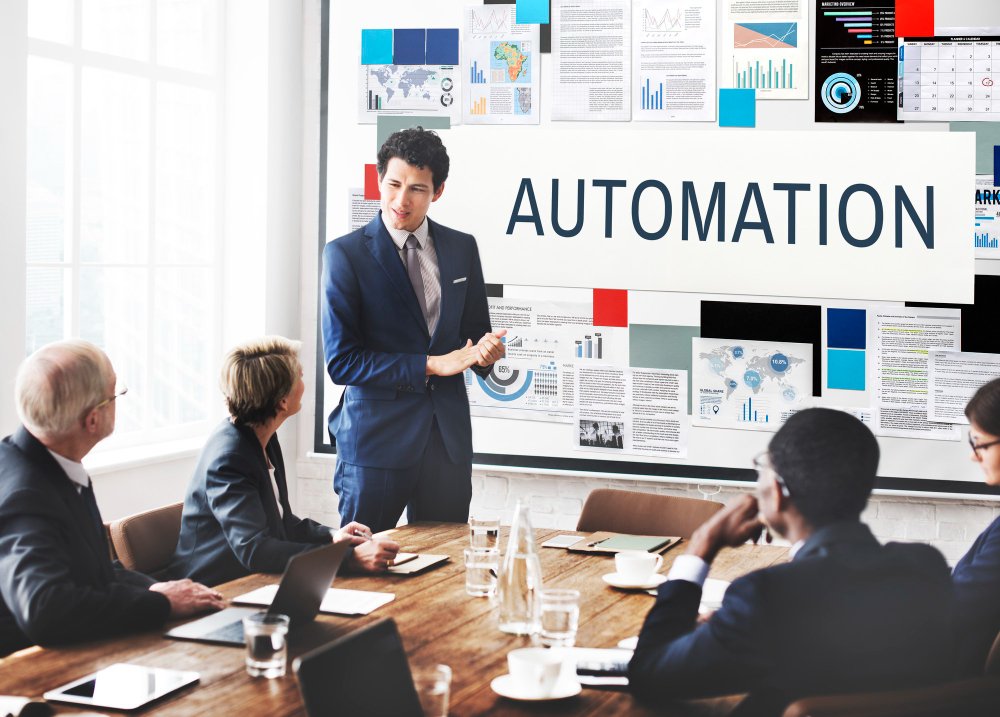In 2025, smart business automation is no longer a luxury but a necessity. Businesses are increasingly turning to AI-driven automation tools to improve efficiency, reduce costs, and stay competitive. From workflow automation and AI-powered chatbots to data analytics and machine learning algorithms, automation is transforming every industry.
With Google search trends showing spikes in searches for “best AI automation tools 2025,” “business process automation,” and “how to automate a business,” this guide provides an in-depth look at the latest trends, tools, and strategies to streamline operations and maximize productivity.
What is Business Automation?
Business automation refers to the use of technology, software, and AI-driven tools to perform repetitive tasks without human intervention. It enhances productivity by handling data entry, customer service, email marketing, accounting, and workflow management seamlessly.
Types of Business Automation:
- Process Automation – Automates repetitive business tasks.
- Robotic Process Automation (RPA) – Uses software bots to handle workflows.
- AI-Powered Automation – Uses artificial intelligence for predictive analytics and smart decision-making.
- Marketing Automation – Automates email campaigns, social media scheduling, and customer segmentation.
- Customer Service Automation – Uses chatbots and AI-powered customer support.
Benefits of Smart Business Automation
1. Time Savings
- Automates repetitive tasks like email responses, data entry, and scheduling.
- AI-powered assistants like ChatGPT, Siri, and Google Assistant enhance productivity.
2. Cost Reduction
- Reduces labor costs by automating administrative tasks.
- AI-driven analytics optimize spending and increase ROI.
3. Increased Accuracy & Efficiency
- Eliminates human errors in accounting, inventory management, and HR tasks.
- Smart tools like QuickBooks, Xero, and SAP AI ensure financial accuracy.
4. Better Customer Experience
- AI chatbots provide 24/7 support with instant responses.
- Personalization through AI-driven marketing tools like HubSpot, Marketo, and Salesforce AI.
5. Scalability & Growth
- AI-powered insights help businesses make data-driven decisions.
- Automation supports business expansion without increasing operational costs.

Best AI-Powered Business Automation Tools in 2025
1. AI-Powered Workflow Automation
- Zapier – Connects apps and automates workflows.
- Microsoft Power Automate – Automates business processes seamlessly.
- Airtable Automations – Customizable business automation tool.
2. AI in Customer Support
- ChatGPT for Business – Automates customer support chats.
- Drift & Intercom – AI-driven chatbots for instant customer engagement.
- Freshdesk AI – AI-powered ticketing and customer service.
3. AI-Driven Marketing Automation
- HubSpot – Automates lead nurturing and email marketing.
- Marketo – AI-powered marketing automation platform.
- Hootsuite & Buffer – AI-powered social media automation.
4. AI for Financial Management
- QuickBooks AI – Smart accounting automation.
- Xero AI – AI-powered bookkeeping and invoicing.
- Bill.com – Automates accounts payable and receivable.
5. AI-Powered Sales & CRM
- Salesforce Einstein AI – AI-powered CRM automation.
- Zoho CRM – Smart sales automation.
- Pipedrive AI – AI-enhanced sales funnel management.
How AI is Revolutionizing Business Automation in 2025
1. Hyper-Personalized Marketing
- AI tools like Persado and Phrasee generate high-converting ad copy.
- Predictive analytics suggest the best marketing strategies.
2. Intelligent Chatbots & Virtual Assistants
- AI-powered chatbots handle customer queries, sales, and support efficiently.
- Google’s Bard AI and ChatGPT improve real-time communication.
3. Predictive Analytics & AI Decision-Making
- AI analyzes data to make business predictions and financial forecasts.
- Smart analytics tools like Tableau AI and Google Analytics 4 optimize business strategies.
4. AI-Powered HR & Employee Management
- BambooHR & Workday AI automate payroll and HR operations.
- AI recruitment tools screen candidates faster and more efficiently.
5. Automated E-Commerce & Inventory Management
- AI-powered e-commerce platforms like Shopify AI and Magento AI.
- Inventory tracking tools like Zoho Inventory & TradeGecko optimize stock levels.
How to Implement AI Business Automation in 2025
Step 1: Identify Repetitive Tasks
- List down manual tasks that consume time and resources.
- Prioritize automation for data entry, customer service, and marketing.
Step 2: Choose the Right Automation Tools
- Use AI-powered CRM for customer relationship management.
- Implement chatbots for automated customer support.
Step 3: Train Your Team & Optimize Workflows
- Provide training on AI tools and workflow automation software.
- Use analytics to refine and improve automated processes.
Step 4: Monitor & Scale
- Regularly assess automation tools’ performance.
- Scale automation solutions based on business growth needs.

Future Trends in AI Business Automation (2025 & Beyond)
1. AI-Powered Autonomous Systems
- AI-driven robotic automation in warehouses and logistics.
- Autonomous delivery drones for faster order fulfillment.
2. Voice AI & Conversational Commerce
- Voice search optimization through Google Assistant & Alexa AI.
- AI-powered voice bots handling customer orders & service requests.
3. AI-Driven Personalization & Hyper-Automation
- AI tailors marketing strategies based on user behavior.
- AI-driven recommendations in e-commerce platforms.
4. Blockchain & AI Integration
- Secure automation of transactions and business contracts.
- AI-enhanced blockchain security for fraud prevention.
5. No-Code & Low-Code AI Automation
- Businesses can automate workflows without needing coding expertise.
- Platforms like Zapier AI and Microsoft Power Apps make automation accessible.

